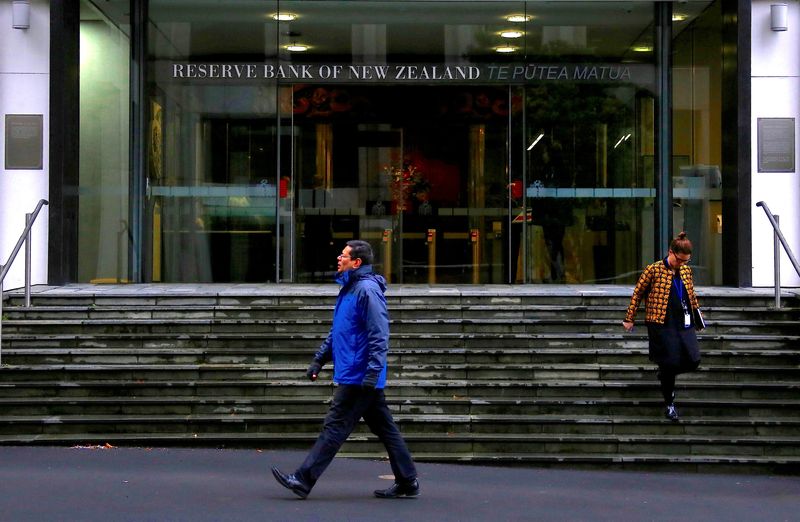Select Language

By Lucy Craymer
WELLINGTON (Reuters) -New Zealand's central bank held the cash rate steady at 5.5% on Wednesday but slightly pushed out when it expects to start cutting the cash rate to 2025, which provided some support for the New Zealand dollar.
The decision was in line with expectations from 29 economists in a Reuters poll all forecasting the Reserve Bank of New Zealand (RBNZ) would leave the cash rate at a 14-year high for the second consecutive meeting.
"The committee agreed that the OCR (official cash rate) needs to stay at restrictive levels for the foreseeable future to ensure annual consumer price inflation returns to the 1% to 3% target range," the statement said.
It said conditional on its central economic outlook, the cash rate would need to remain at around its current level for slightly longer than was assumed in its May statement to meet its inflation and employment objectives.
The RBNZ continues to forecast the official cash rate (OCR) to peak at its current level of 5.5% with some upside risk of another hike, but now does not expect to cut until the first half of 2025, according to the monetary policy review (MPR) accompanying the rate decision.
The New Zealand dollar bounced off lows following the statement to trade up 0.2% at $0.5961, while New Zealand bank bill futures slipped as the market priced in slightly more risk of another hike.
A front-runner in withdrawing pandemic-era stimulus among its peers, the RBNZ has battled to curb inflation, lifting rates by 525 basis points since October 2021 in the most aggressive tightening since the official cash rate was introduced in 1999.
New Zealand's annual inflation has come off in recent months and is currently 6.0%, just below a three-decade high of 6.7%, with expectations it will return to the central bank's 1% to3% target by the second half of 2024.
The rate hikes have sharply slowed the economy, now in a technical recession following two quarters of negative growth.

